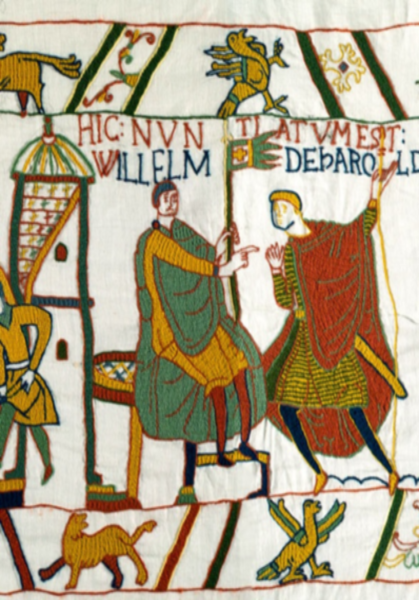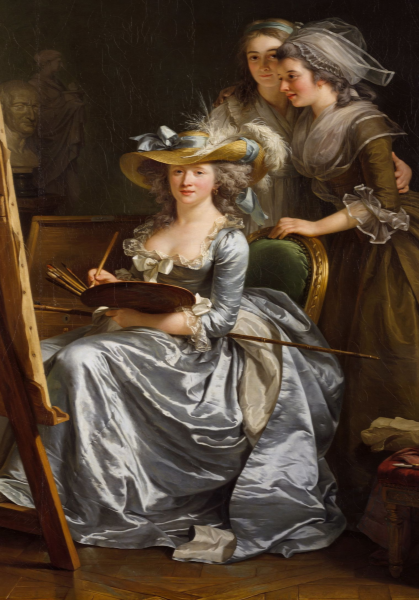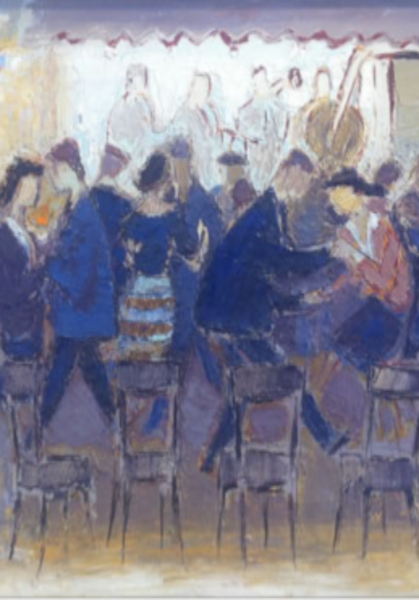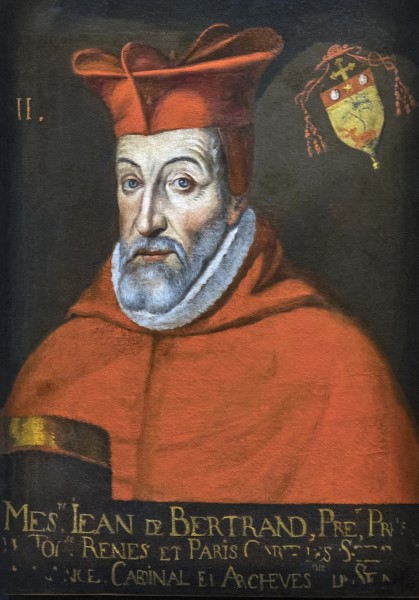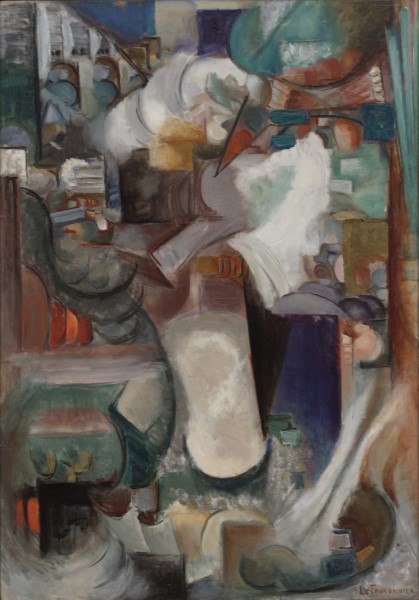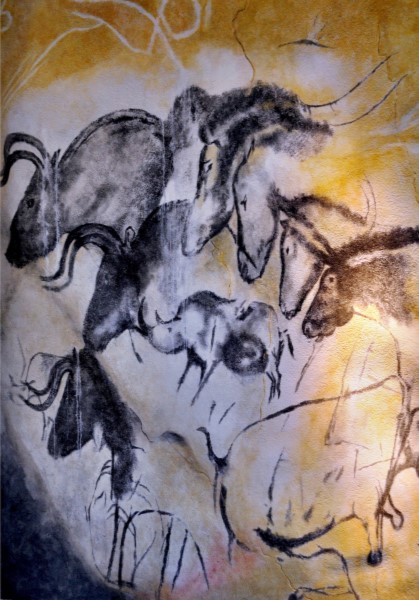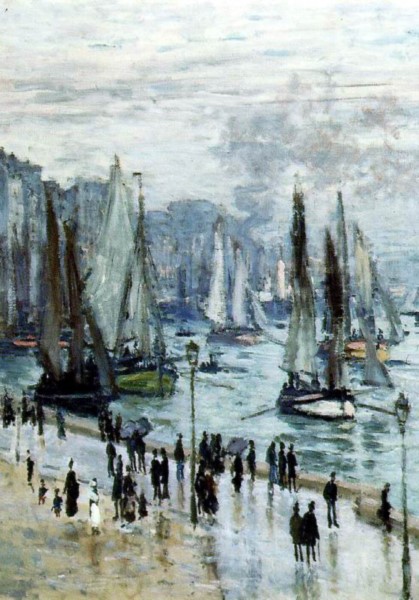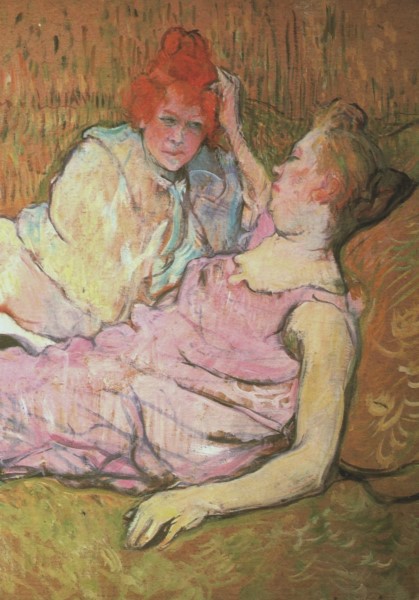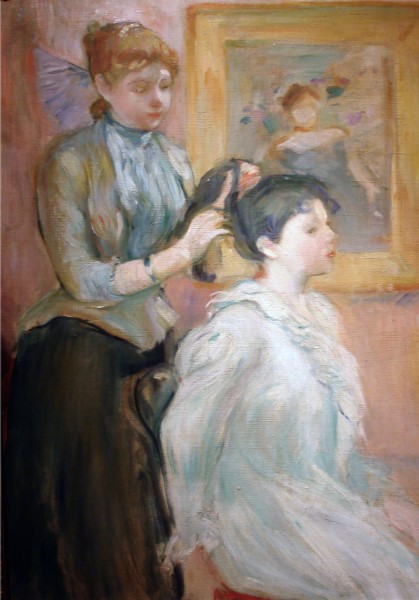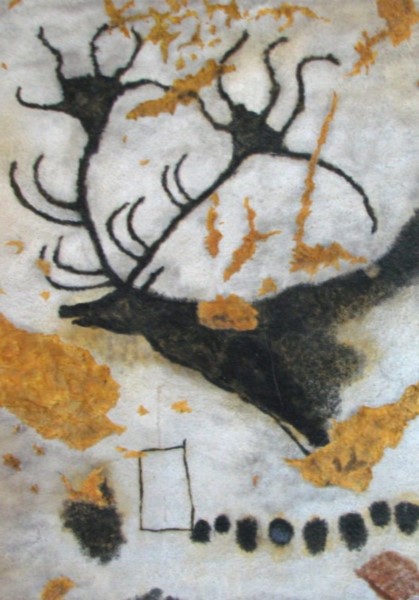Volume 16, Issue 8
Webinar: Surviving the French Revolution: Strategies and Meanings (28 Oct 2024)
In this webinar, Robert Blackman (Hampden-Sydney College) hosts Jeff Horn and Mette Harder, editors of an H-France Salon on the same subject as well as the contributors to the Salon to discuss individual and collective stories of survival in the French Revolution. David Andress (University of Portsmouth) and Karine Rance (CNRS; Université Clermont Auvergne) provide commentaries, followed by questions from the audience.
Volume 16, Issue 7
Webinar: Keywords for Ecocriticism in Francophone Visual Culture of the Nineteenth Century (4 October 2024)
This H-France Salon webinar features five art historians who apply the critical tools of ecocriticism in their study of Francophone visual culture from the long nineteenth century. Each scholar presents a short talk focusing on a key concept—Animals (Katie Hornstein, Dartmouth), Scale (Kelly Presutti, Cornell), Extraction (Stephanie O’Rourke, St. Andrews), Plantation (C.C. McKee, Bryn Mawr), and Salvage (Maura Coughlin, Northeastern). Together, they explore how ecocritical perspectives reshape the field of art history, and demonstrate the broader contributions of this approach to Francophone studies.
Volume 16, Issue 6
Webinar: Scholarly Publishing: Getting Started and Maintaining Momentum (30 September 2024)
This H-France Salon webinar entitled “Scholarly Publishing: Getting Started and Maintaining Momentum” discusses practical strategies to boost scholarly productivity. Panelists Tabetha Ewing (Bard College), Rick Fogarty (University at Albany, SUNY), Jeff Horn (Manhattan College), and Brian Newsome (Georgia College & State University) lead discussions on key topics pertaining to journal articles, the dissertation-to-book process, the second monograph, and strategies for subsequent projects. Denise Davidson (Georgia State University) chairs the session, and contributes insights from her own publishing experiences. Scholars at various stages, from doctoral students to full professors, will find this roundtable discussion helpful as it addresses both early career challenges and long-term scholarly trajectories.
Volume 16, Issue 5
Surviving the French Revolution: Strategies and Meanings
Edited by:
Jeff Horn and Mette Harder
Many of the Revolution’s great figures never lived to see the rise of the Consulate, much less the Empire or the return of the monarchy. Yet even though they made only partial witnesses, those who died from the Revolution have occupied center stage in its accounts. By contrast, this H-France Salon seeks to explore the lives of some of the survivors, their strategies, and the meanings of their survival across the Age of Revolution. Our approach has its origins in a session of David Andress’ virtual seminar on the French Revolution in June 2022 that led to a conversation on the nature of survival and how it can function as a frame for biographies of revolutionary figures. This discussion resulted in two panels at the joint Society for French Historical Studies/Western Society for French History meeting in October 2022, which became the basis for the Salon. Its articles are divided into two sections: 1) Strategies of Survival and 2) Meanings of Survival.
Contrary to traditional narratives, for many contemporaries the need to survive did not just apply to the year of the “Terror” but to the entire revolutionary decade and beyond. Nor was survival limited to escaping the guillotine: it encompassed enduring politically, socially, financially, morally, and emotionally. All the participants in this Salon therefore took a broader focus on survival. In the first part of the Salon, they explored how contemporaries adapted to rapid political, social, economic, and cultural change. What backgrounds and approaches heightened, or lessened, one’s chances of surviving the revolutionary decade and its aftermath? The second part of the Salon investigates survivorship not only as a practical necessity, but also as a vital part of political discourse, activism, memory, and culture. How did revolutionary contemporaries remember, interpret, and narrate their stories of survival? What place did such stories occupy in their own lives and in the Revolution’s history? Collectively, the contributions to this Salon highlight the experiences of a cross-section of French revolutionary society and encourage us to pay greater attention to continuities between previously strictly defined periods such as “Terror” or “Reaction.”
“Introduction“
Mette Harder and Jeff Horn
Part I. Surviving the French Revolution: Strategies
“‘I wrote with my blood’: Families of Jacobin Leaders and their Identities and Survival Strategies after Thermidor”
Marisa Linton
Kingston University
“Surviving the Revolution as a Woman: Strategies of the Directory’s Élégantes“
Christine Adams
St. Mary’s College of Maryland
“Bourgeois Families and Their Survival Strategies”
Denise Z. Davidson
Georgia State University
“Military Service as a Strategy for Surviving Revolution: The Case of Maximien Lamarque”
Christine Haynes
University of North Carolina at Charlotte
“Roll With the Changes: Different Crises, Different Networks in the Survival of Alexandre Rousselin”
Jeff Horn
Manhattan College
Part 2. Surviving the French Revolution: Meanings
“Sade in Paris: The Banality of Survival”
Ronen Steinberg
Michigan State University
“Surviving the Revolution: Marie-Joseph Chénier”
Kirsty Carpenter
Massey University, New Zealand
“Jacques-Joseph Juge de Saint-Martin: Surviving the French Revolution in the Limousin”
David G. Troyansky
Brooklyn College and the Graduate Center, CUNY
“The Consulate and Militant Revolutionaries: Patterns of Persecution and Survival”
Howard G. Brown
Binghamton University, SUNY
“A Republic in Fragments: Montagnard Survivors and Saint-Just’s Manuscript Remains”
Mette Harder
SUNY Oneonta
Volume 16, Issue 4
Webinar: Jessica Tanner, “Sex Work, Text Work: Mapping Prostitution in the Nineteenth-Century Novel”
NCFS Unbound (Season 4, Episode 4)
In this session, recorded on February 16, 2024, Jessica Tanner of the University of North Carolina talks about her new book Sex Work, Text Work: Mapping Prostitution in the Nineteenth-Century Novel with Colin Foss of Austin College.


The schedule of past and future episodes is here: https://ncfs-assn.byu.edu/ncfs-in-captivity/
For more information about this series, contact organizers Masha Belenky, Susan McCready, and Rachel Mesch at ncfsbookseries@gmail.com
Volume 16, Issue 3
Webinar: Susan Hiner, “Behind the Seams: Women, Fashion, and Work in Nineteenth-Century France”
NCFS Unbound (Season 4, Episode 3)
On January 19, 2024, Susan Hiner of Vassar College spoke about her new book, Behind the Seams: Women, Fashion, and Work in Nineteenth-Century France with Heidi Brevik-Zender of the University of California – Riverside.


The schedule of past and future episodes is here: https://ncfs-assn.byu.edu/ncfs-in-captivity/
For more information about this series, contact organizers Masha Belenky, Susan McCready, and Rachel Mesch at ncfsbookseries@gmail.com
Volume 16, Issue 2
Webinar: Paul Delaroche- Painting and Popular Spectacle (January 24, 2024, 10:00 AM Eastern Time-US and Canada/ 3:00 PM GMT)
Moderator: Gülru Çakmak, University of Massachusetts Amherst
In this webinar, Patricia Smyth (University of Warwick) is joined by an interdisciplinary panel of scholars including Emma Barker (the Open University), Janice Norwood (University of Hertfordshire), and Caroline Radcliffe (University of Birmingham), alongside a live audience, in order to examine some of the themes raised by Smyth’s book Paul Delaroche: Painting and Popular Spectacle (Liverpool University Press, 2022). The participants discuss the intersection of theater history, art history, and visual culture, offering insights into Delaroche’s work against the background of eighteenth- and nineteenth-century spectatorship practices.
Volume 16, Issue 1
“Mapping and Place Making in the French Empire”
Edited by:
Angie Epifano, Yale University
“Mapping and Place Making in the French Empire” is a thematic volume that examines the role of place-making in the French Empire. Building from the geographic turn in recent scholarship, authors in this volume consider the ways that mapping and spatial constructions affected French imperial and colonial projects. This volume brings together scholars from across time periods and geographies in order to illuminate points of convergence and departure within the French Empire. The authors grapple with the long-lasting effects of colonial and imperial logics both on indigenous communities and perceptions held by those in the metropole. The authors also consider moments of rejection of and resistance to imperial-colonial structures by indigenous actors, pointing to moments for scholarly innovation.
“Introduction: Mapping and Place Making in the French Empire,”
Angie Epifano
Yale University
“Adding Relief to Maps: French and Indigenous Cartography at the Arkansas Post,”
Tessa Evans
Germanna Community College
“Lands in Translation: Reconfiguring Space and Ownership on a Phosphate Plateau,”
William Matt Cavert
University of Hawai’i West O’ahu
“Beyond Belonging: Rethinking Domestic Space in Imperial Histories,”
Gregory Valdespino
“A road trip through the colonial culture of “Wider France.” Revisiting “The Black Journey” (1924-1925) beyond our colonial amnesia,”
Vincent Clement
University of New Caledonia




